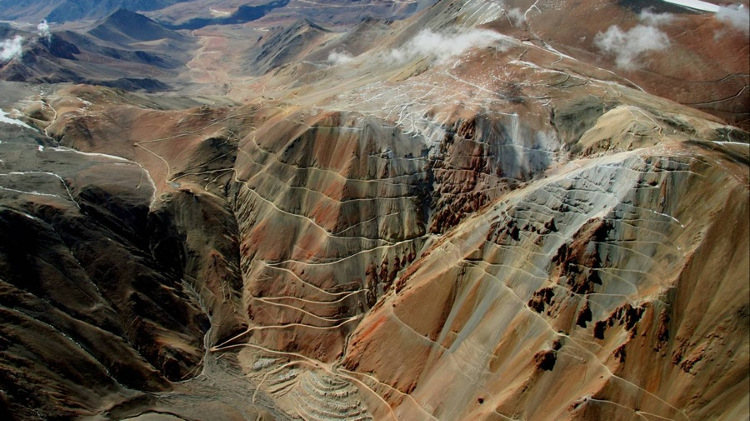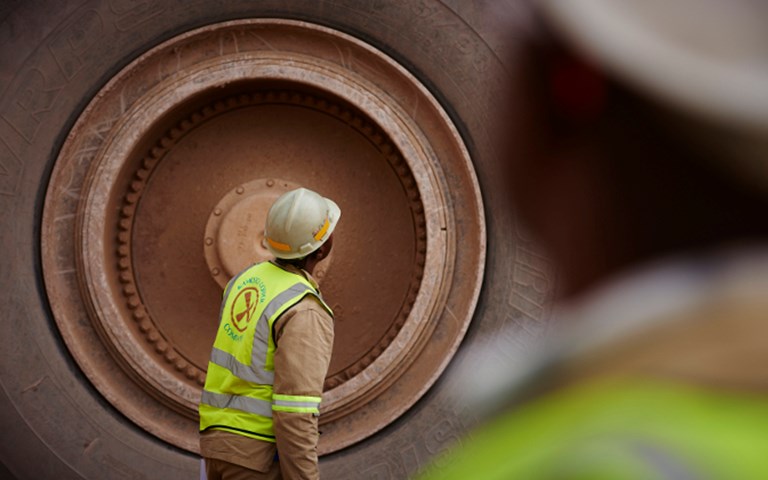Workers at Glencore's Katanga mine in the Democratic Republic of the Congo. Glencore is one of several companies that have objected to the Congolese mining code changes. Courtesy of Glencore
The eyes of the Democratic Republic of the Congo’s (DRC) mining industry are on President Joseph Kabila as he prepares to sign off on the country’s new mining code. While the hike in profit tax and royalties have companies on the defence, experts say the current code, signed into law in 2002, is long overdue for an update. “I think we’re seeing across most of Africa a new generation of mining codes coming in, and I don’t think the DRC mining code affected anything different from those norms,” says Ben Radley, a member of the Centre of Expertise for Mining Governance at the DRC’s Catholic University of Bukavu. “For me, they’re positive improvements in terms of increasing the state’s capture of the revenue generated by the sector, which historically has been low, including over the last ten years.”
For companies operating in the region, including Randgold Resources, Ivanhoe Mines, Glencore, China Molybdenum, MMG and Eurasian Resources Group, the outlook on the proposed changes has not been as positive. “Faced with this situation, the mining industry expresses its deep concern as to the format of the initiated process and the content of the revised draft code,” Glencore said in a press release in December. “The process in itself, i.e. a unilateral revision of the tax and legal system currently governing the industry, represents a strong negative signal sent out by the DRC, which could do nothing but undermine, for a long period of time, the confidence of the stakeholders in the sector.”
While the original draft negotiated between the government and the private sector in 2015 was met with greater acceptance, the most recent draft of the code introduces new clauses that multinational corporations say would threaten their fiscal stability. The code, which was approved by the second of the country’s two chambers of parliament in January, would increase taxation on profits (to 35 per cent, up from 30), the government’s stake in new mining projects (to 10 per cent, up from five), and royalties on copper and cobalt (to 3.5 per cent, up from two), as well as introduce a super-profits tax of 50 per cent if commodity prices rise by 25 per cent above what was used in a mine’s feasibility study. It also sees the dissolution of the existing 10-year stability clause, which safeguards companies against fiscal and customs regime changes. With the support of several major mining companies, Randgold CEO Mark Bristow threatened in early January to take the case to international arbitration if the president signs off on the code.
Related: As Tanzania tightens rules on foreign investors, Canadian mining companies among those affected
However, not all industry leaders have shunned the changes put forth by the Kabila administration. Ivanhoe CEO Robert Friedland expressed willingness to accept higher rates of taxation, with the caveat that it be coupled with an improvement to the way the government operates. “I don’t mind paying…as long as that royalty goes to develop, help and empower local people,” Friedland said at the Investing in African Mining Indaba in Cape Town. “I want the accounting of that money to be transparent and absolutely help people around the mines.”
While the regulations, if enacted, would enable the DRC to come closer to the World Bank’s recommended state capture rate, with tax rates and royalties in line with regional norms, the new code falls short of addressing the wider issues of good governance. “The previous mining code in 2002 had very few clauses that related to, for example, processes of displacement when mining companies need to construct projects or expand their mines,” said Radley, “and I think there’s a real need to fill that gap by providing more specific regulations for how companies should behave, in line with international standards. Given these wider systemic issues, based around in particular accounting practices of companies, informal taxation practices of the government and lack of broader industrial policy in the Congo, I think any change is unlikely to make a significant long-term difference for Congolese people.”
The decision to push through the new set of regulations comes on the heels of the recent battery-driven cobalt boom, with prices soaring 127 per cent in 2017 alone. Fueled largely by increased demand for smartphones, electric cars and energy storage, the rush would represent a significant revenue boost for the DRC, the world’s leading cobalt producer. Despite the opposition to the new mining regime, BMI Research predicts the DRC will be the world’s fastest growing mining centre in 2018, and government officials seem to share that confidence. Speaking at this month’s Mining Indaba in Cape Town, the country’s mines minister Martin Kabwelulu compared the changes to a bush fire: “The fire is not going to destroy everything. There are plants that will keep their roots. New plants will grow.”



